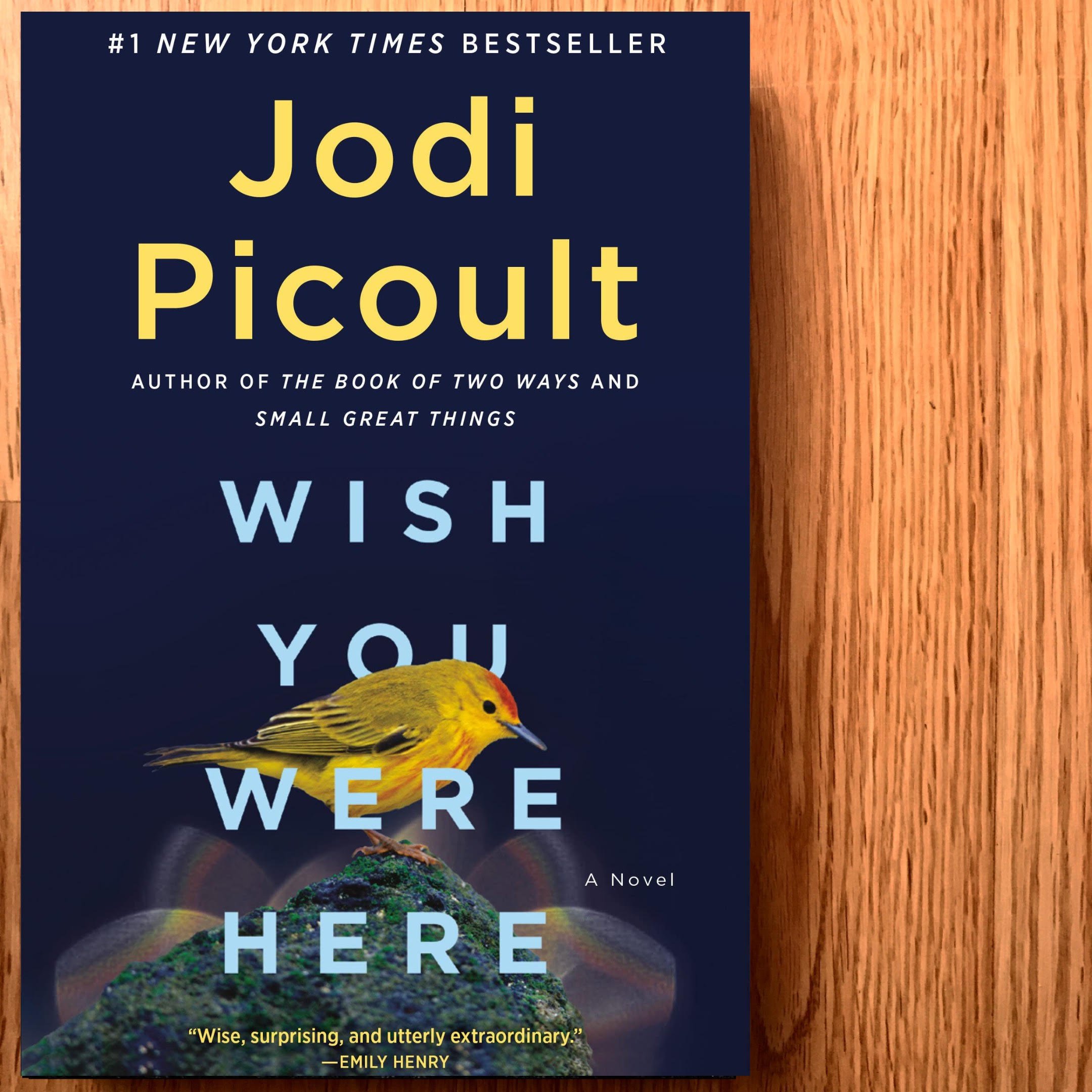By Graham Strong
Content warning: COVID-19
This book might be too soon for some, dealing as it does with COVID. But Jodi Picoult’s Wish You Were Here is not what you might think a “COVID novel” would be.
If you’ve read Picoult before, no doubt this March 2021 offering will feel like familiar territory. Picoult’s refusal to stick with any particular genre is one of her endearing qualities, and she manages to combine several genres here. You’d be forgiven if you wondered if this might be a rock novel with a Yoko Ono-type artist selling a painting given to her by a John Lennon-esque husband for a wedding present before his untimely death. Maybe that’s the book that it was going to be. Maybe COVID interrupted her original novel, forcing Picoult to interrupt her story. Maybe.
I want to be very careful describing what follows. I highly recommend going into this book “cold,” without too much information about the story. Suffice to say there are twists and turns, examinations of memory and our place on the earth, and deep questions about who our self-actualized selves actually are. Yet through all her semi-existentialist exploration, Picoult keeps the tone as light and breezy as you’d expect from an upmarket novel.
I was also impressed that Picoult doesn’t let COVID overwhelm the story. Yes, it’s there in the background—and sometimes even in the foreground—but then, isn’t that the way COVID was for most of us? Always there like a heavy blanket, sometimes hanging behind us and sometimes smothering us? She also deals with the pandemic from many different angles while maintaining a first-person POV. We, the readers, saw our own points of view through COVID, and perhaps two or three others vicariously through our family and loved ones. Picoult shows us a good half-dozen, including viewpoints from different locations in the world.
If I had a quibble, it would be with the first quarter or so of the novel. It felt uneven in places, perhaps a little rushed. Indeed, this was one of the first major novels to be written during COVID, published almost exactly one year after the pandemic shut down the world. I wonder if maybe Picoult took a different direction with her story partway through and had to go back to change the beginning. Either way, it could have used another polish to smooth the edges.
I was also not a fan of the ending, but that won’t matter to you. You’ll make up your own mind about the end, and many of you will love it. I will say this: Picoult kept me guessing right to the last page, so in that way I found the ending satisfying.
The Author’s Note at the end of the book is a nice touch too. It gives the reader some interesting insights into where she got her story ideas from and how difficult it was to write this during COVID. Writing is a lonely business, but it seems writing this book was especially lonely for Picoult. I know many creatives who had a hard time producing during COVID, so the fact that she completed a whole novel under more difficult circumstances than many is an achievement in itself.
Ultimately, this novel is a recommend for all readers; for Picoult fans, it’s a no-brainer. She does a masterful job of weaving a tight, twisting story with COVID as mostly peripheral backdrop.
Thank you to Penguin Random House Canada for the complimentary copy in exchange for an honest review.


